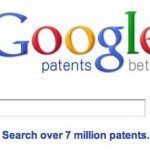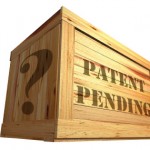In the time that the Apple vs. Samsung patent fight has been underway, we have been inundated with an untold number of articles on how Apple is stifling innovation in the SmartPhone world. (Haven't seen these: just do a Google search for "Apple stif . . ." you don't have to type any more than this--the search auto-completes itself.) I often take a contrarian view from that stated by most "expert" commentators--be they members of the press or actual patent professionals, and the Apple v. Samsung verdict is no exception: I think the result actually demonstrates that the patent system is working just fine in this instance, thank you very much. But how can this be when Samsung got hit with more than a BILLION US DOLLAR jury verdict last week?!? Doesn't the fact that Samsung could not make a product without infringing Apple's multitude of patents mean that
The Apple vs. Samsung Verdict Actually Demonstrates that Patents Do Promote Product Innovation
Google Changes the Game Again–This Time for Patent Owners and Those Who Serve Them
 Patrick Anderson of the great Gametime IP blog reported the details of Google's new prior art searching tool*. This is such important news, I thought it important to repeat it in a separate post. Patrick provides detailed instructions for how to use the Google patent searching tool, and I will not repeat that information here. This post provides commentary on why I think this is a very good development for the patent world. Google's original announcement on its blog is here. It does not appear coincidental that Google is upgrading its patent searching capabilities: in this press release from June 2010 we are informed of the partnership between Google and the USPTO to increase the amount of US patent information available to the public.
When used correctly, Google's tool can help "democratize" the patent analysis process
Patrick Anderson of the great Gametime IP blog reported the details of Google's new prior art searching tool*. This is such important news, I thought it important to repeat it in a separate post. Patrick provides detailed instructions for how to use the Google patent searching tool, and I will not repeat that information here. This post provides commentary on why I think this is a very good development for the patent world. Google's original announcement on its blog is here. It does not appear coincidental that Google is upgrading its patent searching capabilities: in this press release from June 2010 we are informed of the partnership between Google and the USPTO to increase the amount of US patent information available to the public.
When used correctly, Google's tool can help "democratize" the patent analysis process
Patents–Who Needs Them? Not Most Startup Entrepreneurs.
 A recent article in TechCrunch indicates that entrepreneurs are less likely to file patents than in the past. Nonetheless, there remain countless patent lawyers and agents who will argue convincingly that an entrepreneur must obtain a patent in order to succeed and who will take their $5-15K to file a darned good patent application that won't provide them a bit of business value in the long run. Even worse, the resources expended in the patent process robs the entrepreneur of needed cash that will allow them to gain customers, and of their most valuable asset: time. But when the only tool you have is a hammer, everything looks like a nail--which is why those still in the business of writing patent applications will continue to make their case to entrepreneurs (and investors) who lack the domain expertise to
A recent article in TechCrunch indicates that entrepreneurs are less likely to file patents than in the past. Nonetheless, there remain countless patent lawyers and agents who will argue convincingly that an entrepreneur must obtain a patent in order to succeed and who will take their $5-15K to file a darned good patent application that won't provide them a bit of business value in the long run. Even worse, the resources expended in the patent process robs the entrepreneur of needed cash that will allow them to gain customers, and of their most valuable asset: time. But when the only tool you have is a hammer, everything looks like a nail--which is why those still in the business of writing patent applications will continue to make their case to entrepreneurs (and investors) who lack the domain expertise to


